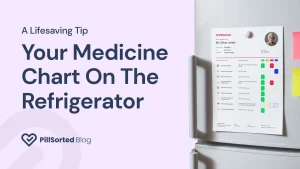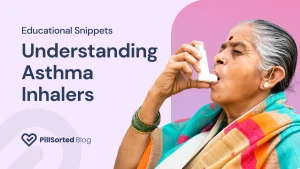Women’s Top 3 Health Concerns

While women tend to visit their GPs more frequently than men, when it comes to the most worrying of symptoms, women are just as tempted to ignore whatever is bothering them and hope it goes away. But that’s a mistake, especially when it comes to the top three women’s health concerns—heart disease, breast cancer, and mental health. Catching these conditions early is key to recovery and to living a long and healthy life.
In this post:
- Heart disease & warning signs
- How to reduce your risk of having a heart attack
- Breast cancer & warning signs
- How to reduce your risk of developing breast cancer
- Mental health & warning signs
- How to reduce your risk of developing mental health issues
Heart Disease
Heart disease, also known as cardiovascular disease, is a broad term that includes coronary artery disease, heart failure, valvular heart diseases, and various other conditions that impede the heart’s ability to function effectively. It leads to complications such as chest pain (angina), heart attacks, strokes, and irregular heart rhythms.
Warning signs
Heart disease is the leading cause of death of women globally. In the UK, women are twice as likely to die of heart disease than breast cancer. Despite its prevalence, women are still more likely than men to be misdiagnosed. This misdiagnosis can happen because many people are not aware that women and men can present different signs of a heart attack. For example, women are significantly less likely to report chest pain or discomfort compared with men. That’s why it is so important to make sure you know all the warning signs of a heart attack.
Women are significantly less likelyto report chest pain or discomfort compared with men
Main warning signs of a heart attack:
- Chest pain (angina)—women may experience discomfort as opposed to a sharp pain
- Shortness of breath—women may experience this symptom alone without chest pain
- Nausea or vomiting—women may mistake this for gastrointestinal issues
- Pain in the jaw, neck, back, or upper abdomen—women may feel pain in these areas instead of in the chest
- Pain in one or both arms—particularly the left arm
- Feeling faint, lightheadedness, or dizziness
- Unusual or unexplained fatigue
- Cold sweats
- Heartburn (indigestion)
Less common symptoms are a persistent cough, wheezing, a bloated abdomen, loss of appetite, unexpected changes in weight, and confusion.
Of course, all these symptoms can arise for reasons other than heart disease, so if you are concerned, it is important to seek help immediately.
How to reduce your risk
Risk factors for heart disease in women include age, family history, smoking, high blood pressure, high cholesterol, diabetes, and an inactive lifestyle. To reduce your risk of heart attack, you should eat a balanced diet, stay physically active throughout your life, and maintain a healthy weight. Giving up smoking, reducing your alcohol consumption, and keeping your blood pressure under control, all go a long way to help you avoid having a heart attack and to maintaining a healthy heart.
| Dos | Don’ts |
|---|---|
| Eat a balanced diet prioritising a colourful array of fruits and vegetables, whole grains, and lean proteins | Don’t consume a diet high in saturated and trans fats, cholesterol, sodium, and added sugars |
| Stay physically active | Don’t be sedentary |
| Maintain a healthy weight | Don’t consume excessive calories |
| Reduce alcohol consumption | Don’t drink excessive amounts of alcohol |
| Keep your blood pressure under control | Don’t skip regular check-ups |
| Give up Smoking | Don’t Smoke |
Breast cancer
Breast cancer is a type of cancer in the cells of the breast that can occur in both men and women, but it is far more common in women. Breast cancer is the most common cancer among women worldwide, both in developed and developing countries. It usually starts in the ducts or lobules of the breast and may invade surrounding tissues or spread to other parts of the body.
Breast cancer is the most common cancer among women worldwide
Warning signs
- Lump or thickening in the breast or underarm, or around the collarbone
- Asymmetry due to a change in the size or shape of one or both breasts
- Nipple discharge which may be streaked with blood
- Dimpling, puckering on the skin of your breasts
- Rash or redness on or around your nipple
- Change in skin texture
- Nipple retraction, such as becoming sunken into your breast
- Nipple or breast pain
How to reduce your risk
Your risk of getting breast cancer risk depends on many factors. Some are related to your genes—having a family history, particularly having first-degree relatives with breast cancer, and inherited gene mutations like BRCA1 and BRCA2. Age also plays a key role, as women, especially those over 50, are at a higher risk of breast cancer.
Reducing the risk of breast cancer involves taking a proactive approach to the things you can control, such as getting regular mammograms and clinical breast exams, and adopting a health-conscious lifestyle by maintaining a healthy weight through a balanced diet and regular physical activity, and by limiting alcohol intake and avoiding tobacco use. Breastfeeding, if possible, has also been shown to provide protective benefits.
Genetic testing for BRCA1 and BRCA2 gene mutations to see if you have an increased risk for breast and ovarian cancers is recommended if you have a strong family history of those conditions, but the results are not always clear, so be sure to talk with a genetic counsellor first.
| Dos | Don’ts |
|---|---|
| Get regular mammograms and clinic breast exams | Avoid or delay breast exams |
| Get regular physically activity | Be sedentary |
| Maintain a healthy weight | Consume excessive calories, saturated and trans fats |
| Reduce alcohol consumption | Drink too much alcohol |
| Avoid tobacco use | Smoke |
| Consider genetic counselling | Ignore breast changes |
Mental health
Mental health refers to your emotional, psychological, and social well-being. You can also think of it as your ability to handle stress, relate to others, and make choices. Mental health conditions disrupt those abilities and can have a substantial, detrimental, and sometimes even fatal impact on your life.
Some mental health conditions that affect women more than men, include: depression, anxiety, eating disorders, post-traumatic stress disorder (PTSD), Seasonal Affective Disorder (SAD), and Borderline Personality Disorder (BPD).
Common mental health warning signs may include:
- Persistent changes in mood, such as prolonged feelings of sadness or irritability,
- Withdrawal from social activities
- Changes in sleep patterns
- Excessive worry or sense of dread
- Difficulty concentrating
- Changes in appetite
- Unexplained aches or pains
- Fatigue
- Changes in weight
- Recurrent thoughts of self-harm or suicide
How to reduce your risk
Several factors contribute to the risk of mental illness in women. Hormonal fluctuations, particularly during menstruation, pregnancy, postpartum, and menopause have been linked to depression and anxiety in some women. Additionally, the stress women experience related to the demands of juggling work and family, societal expectations, gender-based discrimination, unequal opportunities, sexual assault or domestic violence, disproportionately affects women. For example, women have a 2-to-3 times higher risk of developing post-traumatic stress disorder (PTSD) compared to men.
Women have 2-to-3 times higher riskof developing post traumatic stress disorder
Fortunately, there is a lot women can do to take proactive steps to reduce the risk of mental illness, starting by prioritising their mental well-being and living a healthy lifestyle. Women should get regular exercise, eat a balanced diet, build strong social connections, and develop effective stress management strategies—such as mindfulness, meditation, or relaxation techniques. Women should also set realistic goals for themselves, set boundaries, and practice self-compassion. If your family has history of mental illness, you should schedule regular mental health check-ups with professionals to discuss your concerns and any symptoms.
| Dos | Don’ts |
|---|---|
| Prioritise your mental well-being | Ignore your symptoms |
| Eat a balanced diet | Engage in substance abuse |
| Get regular exercise | Neglect your physical health |
| Stay social | Isolate yourself |
| Set boundaries | Overcommit yourself |
| Practice self-compassion | Suppress emotions |
Main takeaways
- Heart disease, breast cancer, and mental health issues are the most prevalent health conditions women face today.
- Women and men can present different signs of a heart attack, for example women are less likely to report sharp chest pain.
- Breast cancer is the most reported type of cancer among women worldwide.
- Some mental health conditions affect women more than men, including depression, anxiety, eating disorders, post-traumatic stress disorder (PTSD), seasonal affective disorder (SAD), and borderline personality disorder (BPD).
- Hormonal fluctuations, particularly during menstruation, pregnancy, postpartum, and menopause have been linked to depression and anxiety in some women.
References
Canto, J. et al. (2007), National Heart, Lung, and Blood Institute (NHLBI). Symptom Presentation of Women With Acute Coronary Syndromes — Myth vs. Reality
Wilkinson, l. et al. (2022), Br J Radiol. Understanding breast cancer as a global health concern
Olf, M. (2017). Eur J Psychotraumatol. Sex and gender differences in post-traumatic stress disorder: an update
PillSorted
PillSorted is a full service pharmacy that delivers trusted pharmacy products, over-the counter medications, and the prescriptions your doctor recommends, directly to your door. Your PillSorted pharmacist is happy to answer your questions about weight loss and potential treatment options at 0333 4050380 or help@pillsorted.com.

All third-party trademarks (including logos and icons) referenced by PillSorted remain the property of their respective owners. Unless specifically identified as such, PillSorted’s use of third party trademarks does not indicate or imply any relationship, sponsorship or endorsement between PillSorted and the owners of these trademarks.























